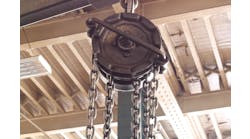Arguably the most surprising aspect of the news that Yokogawa is adding support for Foundation fieldbus and HART to its FCN-RTU low-power autonomous controller, part of the Stardom network-based control system, is that it wasn't included previously. That said, the introduction of the enhanced version is a further indication of how seriously Yokogawa is targeting the upstream oil and gas market. As it points out, the need for maintenance engineers to visit widely distributed oil and gas well sites imposes a heavy financial burden on oil production companies which can be largely eliminated by centrally managing maintenance information, including maintenance histories and field device information.
Adding Foundation fieldbus and HART support provides the necessary capability to acquire maintenance information from field devices. Moreover, using the FCN-RTU in conjunction with Yokogawa's Plant Resource Manager (PRM) integrated device management, various types of information from Foundation and HART devices can be managed and used to schedule inspections, for example diagnosing conditions such as blocked impulse lines.
Multi-Variable Data
Additional claimed benefits of support for digital protocols include reduced wiring costs, enhanced accuracy and, in the case of Foundation fieldbus, the ability to receive multi-variable data such as temperatures and pressures from a multi-sensing transmitter over a single cable. Such multi-variable support reduces the need for digital-to-analog and analog-to-digital data conversion and hence, improves the accuracy of production volume calculations by reducing conversion error. "Applying proven digital technology to oil and gas wellhead control and monitoring revolutionizes field management," claimed Masatoshi Nakahara, general manager of Yokogawa's Industrial Automation Systems Business Center. "The integrated diagnostics information delivered via Foundation fieldbus enables predictive maintenance of sensors and actuators, thus improving device availability. Yokogawa will continue to deliver digital technology solutions that make it possible to steadily reduce costs."
The market for Collaborative Production Management for Process Manufacturing (CPM-P) will top $4 billion by 2013, according to a newly published "Worldwide Outlook" from ARC. Despite the current downturn, process manufacturers continue to invest in CPM-P projects that have a quick ROI and focus on improving efficiency, reducing costs, consolidating operations, complying with regulations and standardizing on applications across the enterprise, says report author Tom Fiske. ARC sees CPM-P as focusing on the three principal areas of plan, operate and inform. Plan determines what to make, when to make it and what equipment to use and derives from the need continuously to find new and better ways to control process equipment and operate plants more efficiently. Inform relates to the gathering, storage, organization and communication of data and information and includes data collection, performance analysis, reporting and role-based KPI visibility. Success in the new economy, argues the report, requires operational excellence along several dimensions including cost-efficient operations, supply chain synchronization and dynamic value creation, all of which are facilitated by CPM systems.



